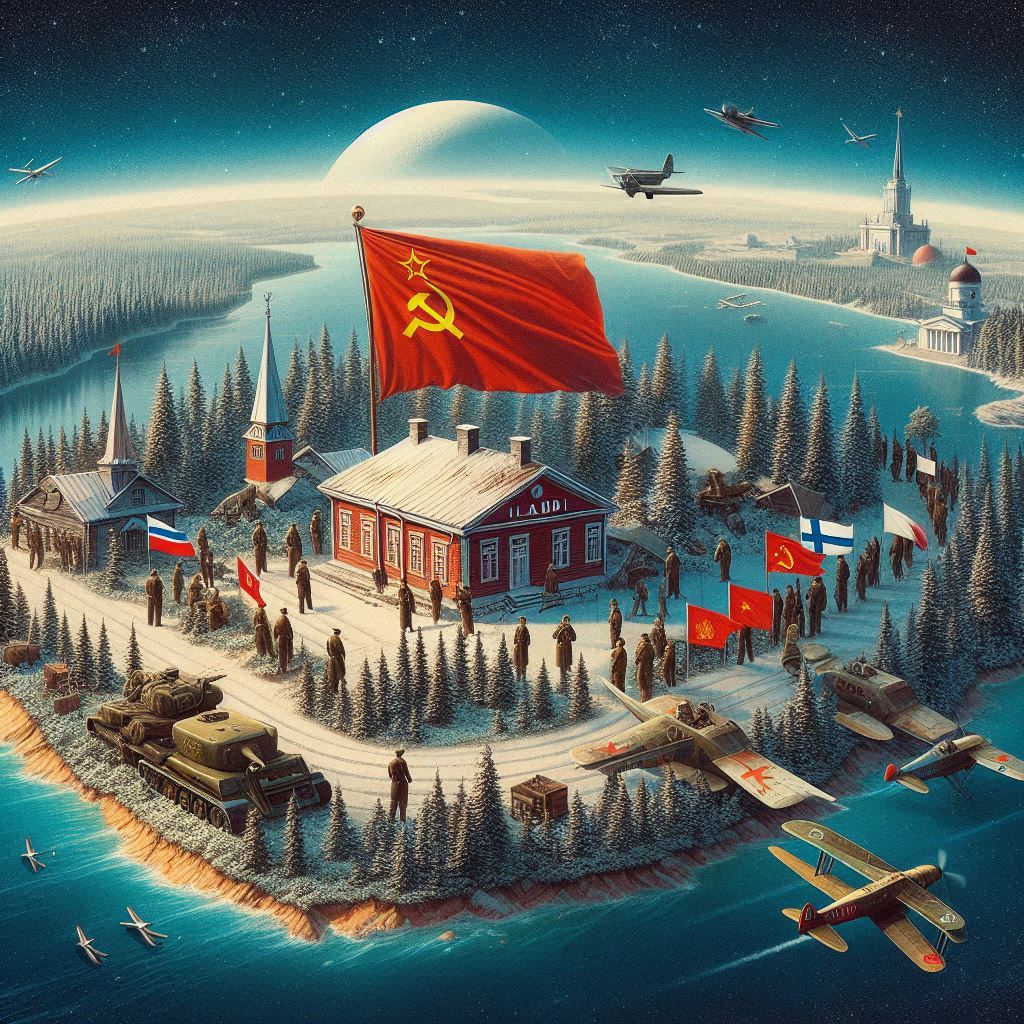芬蘭與蘇聯之間的戰爭與落幕,值得烏克蘭借鏡
在第二次世界大戰期間,芬蘭與蘇聯之間發生兩次主要的戰役,即冬季戰爭(1939-1940年)和繼續戰爭(1941-1944年)。
冬季戰爭爆發於1939年11月30日,因為蘇聯希望擴大其領土,特別是想要控制卡累利阿地區及芬蘭灣周圍的戰略要地,以確保列寧格勒的安全。但芬蘭拒絕這一要求。蘇聯隨即入侵芬蘭,希望能迅速佔領該國。
冬季戰爭對於芬蘭來說是一次艱苦的防禦戰。雖然蘇聯的軍隊數量和裝備都遠超芬蘭,但芬蘭士兵利用嚴寒的冬季條件和熟悉的地形,進行頑強的抵抗,並採用靈活的游擊戰術,使得蘇聯軍隊在森林和雪地中進行戰鬥變得極為困難。儘管芬蘭最終無法阻止蘇聯的進攻,但他們的頑強抵抗贏得國際社會的尊敬。1940年3月13日,雙方簽訂《莫斯科和平條約》,結束冬季戰爭。根據條約,芬蘭被迫割讓卡累利阿地區及芬蘭灣的部分島嶼,失去的領土約佔芬蘭國土10%。戰爭的結束對芬蘭造成巨大影響,除失去大片領土,還有數十萬居民被迫遷移。
繼續戰爭爆發於1941年6月25日,是在德國入侵蘇聯(即巴巴羅薩行動)後,芬蘭試圖收復冬季戰爭中失去的領土而與德國結盟,對蘇聯發動進攻。芬蘭在這場戰爭中試圖重新奪回卡累利阿和其他失地,並在初期取得一些成功,佔領許多先前失去的地區。然而,隨著戰爭進行,蘇聯軍隊逐漸反擊並佔據上風。
1944年,蘇聯發動維堡-彼得羅扎沃茨克攻勢,對芬蘭進行大規模的進攻,迫使芬蘭軍隊撤退。面對蘇聯的強大壓力,芬蘭被迫尋求和平。1944年9月19日,芬蘭和蘇聯簽訂《莫斯科停戰協定》,結束繼續戰爭。根據協議,芬蘭再次失去卡累利阿地區,還包括薩拉的部分地區。此外,芬蘭還需要支付巨額的戰爭賠款,並解除軍備。
第二次世界大戰中芬蘭與蘇聯的兩次主要戰役,對於芬蘭和整個北歐地區都產生深遠的影響。芬蘭失去大片的領土,並在戰後不得不進行重建。這兩場戰爭還鞏固芬蘭的中立政策,使其在冷戰期間保持獨立和中立的地位,直到烏克蘭戰爭後加入北約。
整體來說,冬季戰爭和繼續戰爭凸顯小國在大國博弈中的艱難處境,同時也展示芬蘭人民頑強的抵抗精神和對獨立的堅定追求。雖然在領土上遭受重大損失,但芬蘭成功地保護其國家主權,並在戰後成為一個繁榮和穩定的國家。而現今烏克蘭與俄羅斯若進行和談,烏克蘭不可能將邊境重返到1992年的狀況,勢必要割讓克里米亞半島及烏東地區。
During World War II, two major conflicts occurred between Finland and the Soviet Union: the Winter War (1939-1940) and the Continuation War (1941-1944).
The Winter War began on November 30, 1939, as the Soviet Union sought to expand its territory, particularly aiming to control the Karelia region and strategic areas around the Gulf of Finland to ensure the security of Leningrad. Finland, however, refused this demand, prompting the Soviet Union to invade, hoping to quickly conquer the country.
For Finland, the Winter War was a grueling defensive battle. Although the Soviet forces greatly outnumbered and out-equipped the Finns, the Finnish soldiers utilized the harsh winter conditions and their familiarity with the terrain to mount a fierce resistance. They employed flexible guerrilla tactics, making it extremely difficult for the Soviet troops to fight in the forests and snow. Despite Finland ultimately being unable to repel the Soviet advance, their tenacious defense earned international respect. On March 13, 1940, both sides signed the Moscow Peace Treaty, ending the Winter War. Under the treaty, Finland was forced to cede the Karelia region and several islands in the Gulf of Finland, losing about 10% of its territory. The war's end had a profound impact on Finland, with the loss of significant land and the displacement of hundreds of thousands of residents.
The Continuation War broke out on June 25, 1941, following Germany's invasion of the Soviet Union (Operation Barbarossa). Finland allied with Germany in an attempt to recover the territories lost during the Winter War and launched an offensive against the Soviet Union. Initially, Finland saw some success, recapturing many of the previously lost areas, including Karelia. However, as the war progressed, Soviet forces gradually gained the upper hand and began a counteroffensive.
In 1944, the Soviet Union launched the Vyborg-Petrozavodsk Offensive, a large-scale attack against Finland, forcing the Finnish army to retreat. Facing overwhelming Soviet pressure, Finland sought peace. On September 19, 1944, Finland and the Soviet Union signed the Moscow Armistice, ending the Continuation War. According to the agreement, Finland again lost the Karelia region and parts of Salla. Additionally, Finland had to pay substantial war reparations and demilitarize.
The two major conflicts between Finland and the Soviet Union during World War II had far-reaching effects on Finland and the entire Nordic region. Finland lost a large portion of its territory and had to undergo extensive reconstruction after the war. These wars also solidified Finland's policy of neutrality, allowing it to maintain independence and neutrality during the Cold War until it joined NATO following the Ukraine War.
Overall, the Winter War and the Continuation War highlighted the difficult position of small countries in the power struggles of larger nations while also demonstrating the Finnish people's resilient spirit and steadfast pursuit of independence. Despite suffering significant territorial losses, Finland successfully protected its sovereignty and became a prosperous and stable nation after the war. In the current context of Ukraine and Russia, any potential peace talks would likely mean Ukraine could not revert to its 1992 borders, necessitating the cession of Crimea and parts of the eastern regions.


照片:DALLE3
- 1
- 2
- 3
- 4
